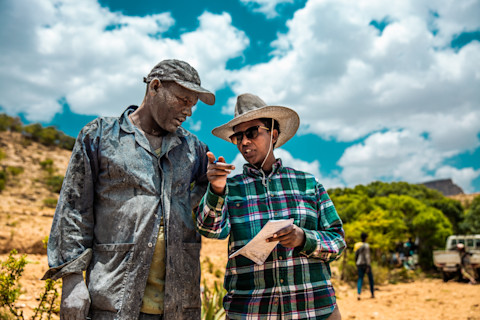Our partners are on the frontlines, preventing COVID-19
Stephanie Goetz, Water Programs Manager May 27, 2020
In many of the countries where charity: water works, health care systems are fragile and resources are limited. In these settings, preventing the spread of COVID-19 is vital to saving lives.
Our local partners are on the frontlines of this prevention effort. The work they do day-to-day is already providing critical water, sanitation, and hygiene infrastructure, but many of our partners are adjusting their programming to further emphasize COVID-19 prevention. This means an added focus on hygiene and handwashing at households and institutions, and doubling down on hygiene messaging and education.
In Nepal, our partners HELVETAS and NEWAH are investing additional resources in household handwashing materials, handwashing stations at health posts and clinics, and educational radio messaging throughout the region, working in close collaboration with local government. In Laos, our partner Thrive has been called on by the provincial government to improve handwashing infrastructure and conduct hygiene campaigns in schools. charity: water is proud to support these efforts.
As countries coordinate their resources towards COVID-19 prevention, it’s not a surprise that our local partners have the expertise they need. During this time, our partners’ work is more important than ever, and having seen the quality of their programs firsthand, it’s reassuring to know that they’re the ones being called to the frontlines to help keep communities around the world healthy and safe.
COVID-19 Hygiene Programming
Bridget Kelly, Water Programs Manager May 19, 2020
Globally, 40% of households lack the supplies needed for handwashing. Long before we were thinking about COVID-19, we were working with our partners to make lasting improvements to hygiene for communities in need. Now, in light of the coronavirus pandemic, our partners are refocusing their work to make sure they and the communities they serve have the WASH (water, sanitation, and hygiene) tools needed to stay healthy and safe.
One of our partners in Madagascar, HELVETAS, is installing handwashing facilities and soap at all completed charity: water projects to ensure that communities have access to handwashing stations at their water point.
Our partner in the Central African Republic, Water for Good, has developed radio content to promote COVID-19 awareness. They are also purchasing spare parts to perform preventative maintenance and repairs for existing water sources.
We recently began funding hygiene kits with our partner Welthungerhilfe in Kenya, which will be distributed to WASH staff and frontline workers. These kits include soap, sanitizer, and masks.
These are just a few examples of the essential work our partners are doing around the world. And thanks to the generosity of supporters like you, they’re able to keep providing access to critical resources like water, soap, and protective equipment to further protect communities throughout this global health crisis.
Supporting COVID-19 prevention in Malawi
Michaela Walsh, Water Programs Manager April 30, 2020
In Malawi, our local partners are taking action to help prevent the spread of COVID-19 in their program areas. With three partners working in different regions of the country, our ongoing programs are affected by the pandemic in various ways. Some partners have received government approval to continue drilling wells in communities while following appropriate safety measures and precautions. Others have temporarily postponed many of their planned program activities in order to focus on COVID-19 prevention work.
Our partner United Purpose is carrying out prevention activities throughout Dowa District in Central Malawi. They are training health workers on COVID-19 prevention, approaches for circulating key hygiene messages in communities, and spreading awareness through local radio programs and mobile public address systems—formats that can reach many people while following social distancing guidelines. They are also developing educational materials and posters, including illustrations (like the ones below) for populations with low literacy.
The government of Malawi recently announced plans for a stay-at-home order. This would restrict movement and close non-essential businesses, significantly impacting daily life across the country. With growing restrictions, we know our partner teams will face additional challenges while carrying out this important WASH work. Their dedication to providing communities with the clean water and hygiene education needed to prevent this disease inspires us every day, and charity: water is committed to supporting them during this time.
Illustrations courtesy of our local partner, United Purpose

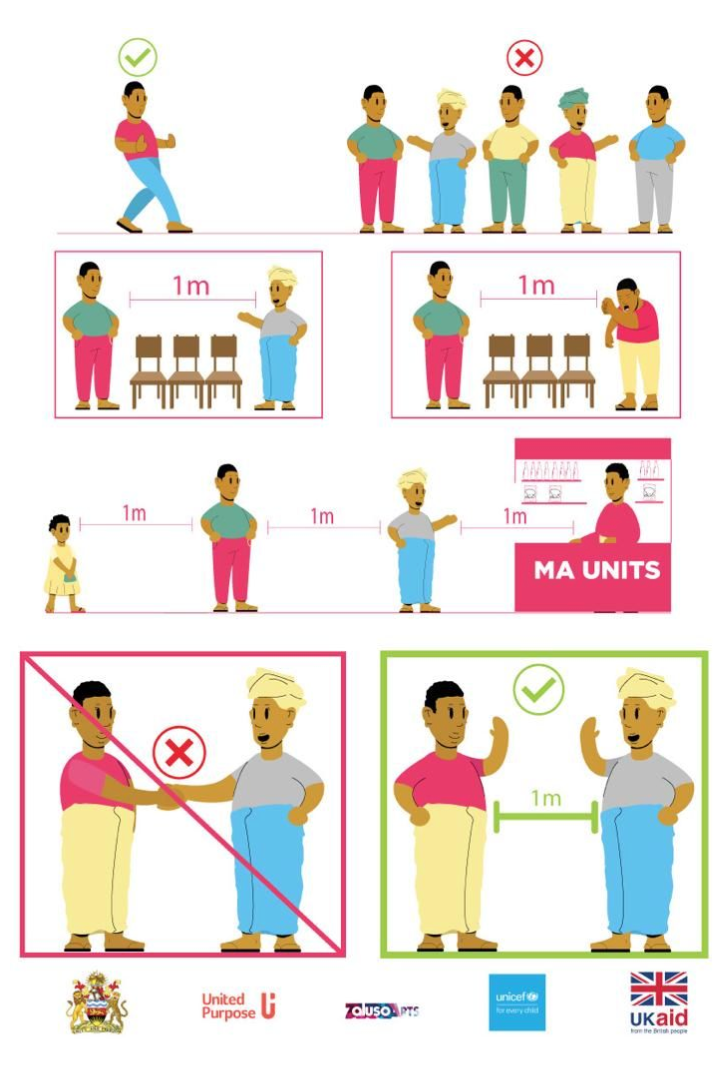
The power of trust
Julia Gallus, Water Programs Manager April 20, 2020
There is no training manual nor policy on trust. However, it is in times like this, times of crisis, when trust, which can be hard to quantify, has the most value.
Trust takes time to develop and grow, but is very powerful when leveraged.
Our local partners can respond to emergencies efficiently because they’ve spent years building trust with the local government, local communities, and local leaders. They’ve empowered their program areas with improved safe water, sanitation, and hygiene practices that are essential to human health. And now, during the COVID-19 outbreak, our partners can quickly activate a network of trained educators to promote health messages and resources specifically targeted toward preventing the spread of the coronavirus.
Our partners work with some of the most vulnerable communities in the world, which makes them much more susceptible to the pandemic. The ability to act quickly due to the high-trust environment they’ve built is critical right now.
Our local partner Welthungerhilfe (WHH) works in the Amuria and Katawki Districts in Eastern Uganda. As a result of conflict in the early 2000s, many people were confined to Internally Displaced Camps. In the past year, they’ve experienced extreme flooding due to shifting rain patterns and waves of locust swarms that will further exacerbate food insecurity in the area.
As soon as the local district was triggered by the Ugandan national government to react to COVID-19, Harriet, the WHH Program Manager, was asked to join the District Government COVID-19 Task Force and provide support to the District Water Office and Health Department. Harriet grew up in the Teso Region and is very respected for the work she’s been leading with charity: water.
With charity: water’s support, WHH has been promoting health messages about the coronavirus in the local language through radio ads, radio shows, and educational posters. They’ve been providing health centers and the government with hand sanitizers, disinfectants, and protective materials. They have worked with communities to add Tippy Taps to water points (pictured below), and will support health centers, schools, and other public places with handwashing facilities. At the household level, they will distribute household handwashing kits, which include soap and provide directions and materials for building Tippy Taps. As the situation unfolds they will also assist prisons and police stations.
In addition to all of this, WHH has received permission to operate as an essential service. This means, with everyone’s safety as the top priority, they’ve been able to continue the new drilled wells and rehabilitation of drilled wells in order to provide access to clean water for those who need it most.
Photos courtesy of our local partner, Welthungerhilfe (WHH)


It is our task to support our partners
Brian Hoyer, Vice President of Program Operations April 13, 2020
Six weeks ago, I was with a partner in West Africa. News was already spreading about the challenges unfolding in Europe and the WHO’s pandemic declaration. Each morning, when I asked our partner’s staff for new updates, they recounted in detail any probable case identified in the region, the situation in Europe, and the exact prevention needed for protection. I also watched as emergency handwashing stations quickly went up in local businesses (a bucket with a tap, soap, and a catch bucket for dirty water) and health screenings with temperature checks began at the border entries. An equally encouraging and worrying sign, because I believe this was a direct reflection of a very traumatic experience from the Ebola outbreak in 2014—an outbreak I saw first-hand, having been deployed to Liberia for a year to lead a treatment facility.
Fast forward to mid-April and I have the same balance of extreme concern and absolute admiration for community response—particularly in West Africa. In recent days, I have talked with our partners in Sierra Leone and, although the first COVID-19 case was confirmed in that country just this past weekend, communities and institutions have been preparing for weeks with handwashing stations, radio awareness campaigns, and WASH preparedness.
Now, more than ever, we are in a position to leverage the expertise of our local partners.
The tough reality is that a place like Sierra Leone simply does not have a sufficient health system to fall back on, even under normal circumstances. Instead, they have already activated a community response the rest of the world can learn from, and now it is our task to support them.
This is what your support looks like—right now, in the middle of a pandemic. Communities in the most remote regions of Ethiopia are practicing social distancing at a water point. They have access to handwashing stations. They’re able to collect the clean and safe water they need to protect their families and stay healthy.
None of this is possible without you.
Thank you for saving lives with the gift of clean water.
Photos courtesy of our local partner, Relief Society of Tigray (REST)
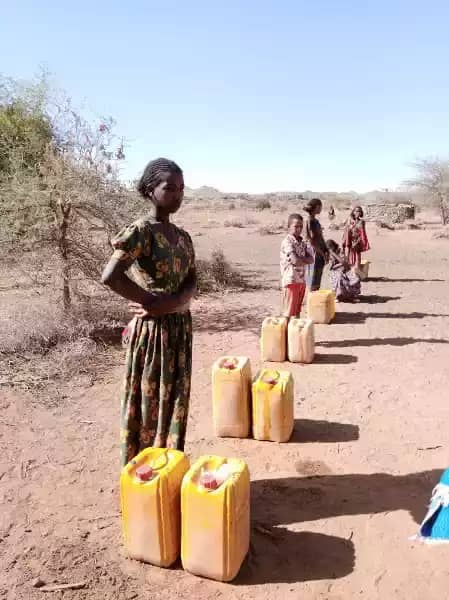
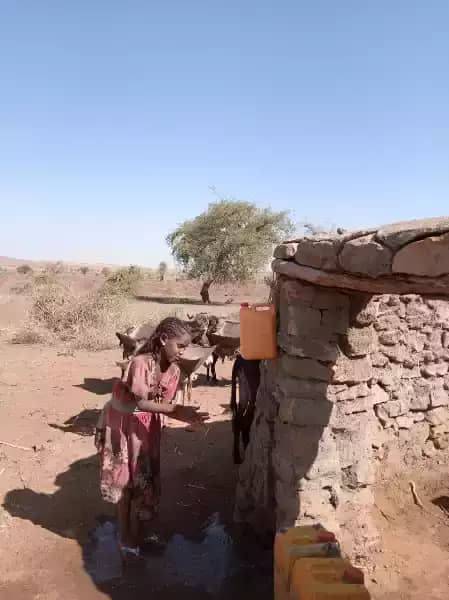
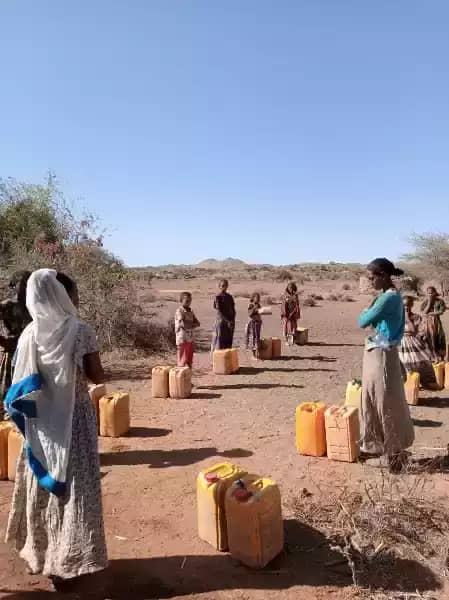
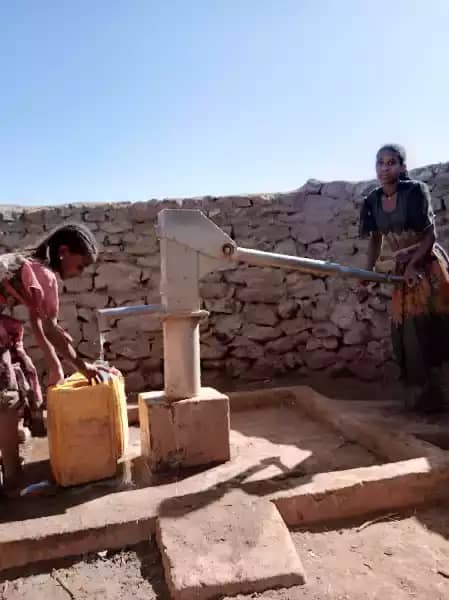
COVID-19 will affect our partners in two significant ways
Christoph Gorder, Chief Global Water Officer April 6, 2020
At charity: water, our 22-country partner network employs over 1,000 of the most inspiring, dedicated professionals you’d ever want to meet. Coronavirus is having a huge impact on everyone in the world, and it’s going to impact our partners in two significant ways.
First, coronavirus is disrupting operations. Most of the countries where we work now have nationwide lockdowns in place. In many ways, they are having the same experience we are. Staff members are doing their best to be productive from home while worrying about keeping themselves and their families safe. We’ve all experienced our own challenges in recent weeks, and you can imagine how challenging these times might be in places like Malawi or Ethiopia. All of this is happening very quickly.
Thankfully, many of these countries are several weeks behind the US, and they’ve been able to take important, preventative steps early in the outbreak. Hopefully, this will save many lives.
Second, because of the very nature of their work, our partners are going to be key to preventing, and then responding to, the outbreaks in their countries. Hygiene, handwashing, social messaging, and clean water are the most important tools in fighting coronavirus. Our partners are experts in this field. So, it’s natural that governments are leaning on them to help with response plans.
2019 was charity: water’s best fundraising year ever, and because 100% of funds go to the field, our partners are at their peak capacity right now in terms of staff and funding. In the coming weeks, we expect our partners to take an increasingly-active role in their governments’ response plans. When they do that, charity: water will be there to support them.
As the efforts in the field ramp up, we’ll keep you informed about how everything’s going.
